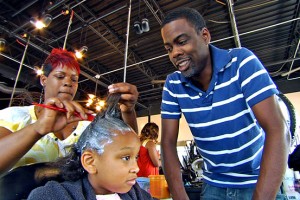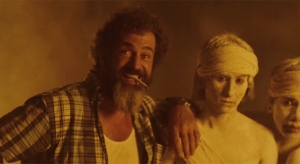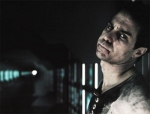Chris Rock’s documentary GOOD HAIR didn’t make it onto my ‘2009 favorites’ list a few weeks back, just because I hadn’t seen it – which should give you a sense of the rock solid validity of that list. Now that I have seen it, the feeling of searing shame I have for leaving it out of that post is indescribable. I have brought dishonor to all WordPress bloggers everywhere.
Rock, a brilliant comic, has had a rough time transitioning to film. As a director, his work’s been marked by high concepts and easy gags. HEAD OF STATE? I THINK I LOVE MY WIFE? Yeesh, and yeesh. What about his HEAVEN CAN WAIT? What was it, DOWN TO EARTH? OK, he didn’t direct that one. But as a lead actor, Rock’s predictably one-note as well. LETHAL WEAPON 4, DOGMA, BAD COMPANY all contain strangely stiff, uninspired performances. With the exception of his rib joint customer cameo in I’M GONNA GIT YOU SUCKA, nothing Rock’s done on the big screen has equaled his work on the boob tube: from his days on ‘Saturday Night Live,’ to his work on Bill Maher’s ‘Politically Incorrect,’ to his great show on HBO, and most recently ‘Everybody Hates Chris.’
GOOD HAIR, however, blows the curve, putting Rock back where he’s at his best: in reality, in conversation, off the cuff. The man-on-the-street element of his HBO series was arguably its strongest, and he brings that format to the silver screen undiminished in GOOD HAIR, interviewing everyone from Harlem barbershop loungers to poet Maya Angelou on the subject of black women’s hairstyles, and the culture and industry built up around their maintenance. The film is book-ended with segments at the Bronner Bros International Hair Show, an annual bazaar for consumers and stylists that draws thousands to Atlanta, for an American competitive spectacle unlike any other. Your jaw will hang.
Apart from being raucously funny from first line to last, Rock’s film is a document of worth – at least for an ignorant cracker like me. The well chosen and well-edited talking heads that make up the film debate forthrightly the merits of painful chemical hair relaxants (a vaunted tradition,) and human hair weaves (a staggeringly expensive habit,) and why such excesses are so deeply ingrained in African American culture. Is it just common sense to cover up nappy roots? Maybe such extreme measures are an outgrowth of a minority self-image crisis in a primarily Caucasian country? Or, maybe, in spite of the questionable causes of seeking out “good hair,” it simply isn’t worth fucking with a woman who wants to look her best. (This is the side that Mister Ice-T takes, in his infinite, smutty wisdom…) In discussion, Rock handles his subject alternately with reverence and irreverence, and his film comes away with few concrete conclusions; though it works like Michael Moore’s muckracking at its funniest, this isn’t any sort of agitprop. The tone is playful and provocative, and though the topic runs a little low on steam around the hour mark, that only means that Rock has to fill the last portion of his film with the finals competition of the Bronner Brothers Hair Show, a display every bit as absurd as the climax of ZOOLANDER, but all the more hilarious for its, you know, actual, objective reality.
Forgive me for getting to the party late. But the truth on display in GOOD HAIR is funnier than any fiction 2009 had to offer.












